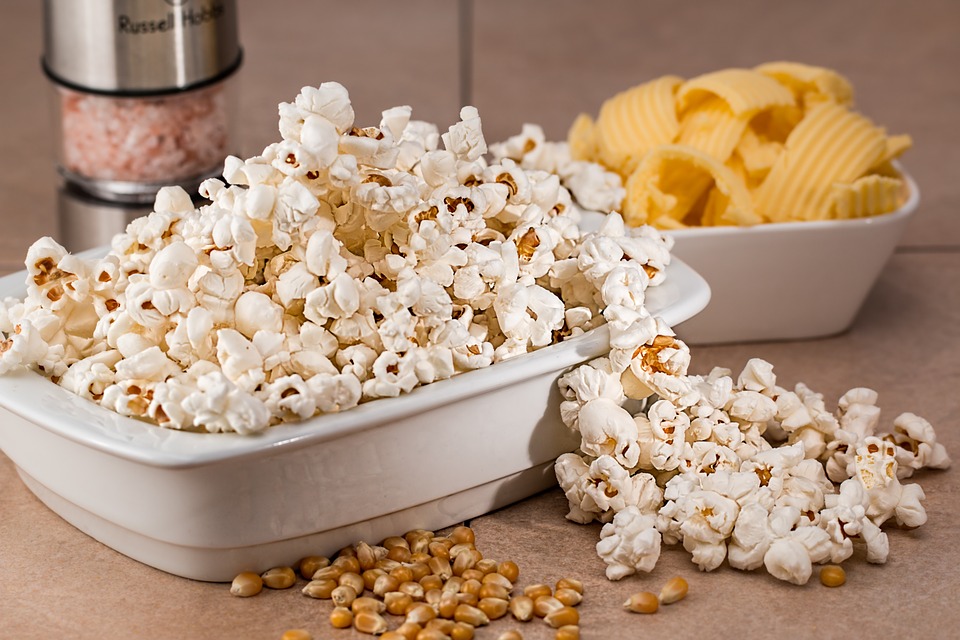
Salt isn’t “bad” per se, says integrative medicine physician Pooja Amy Shah, MD. “It’s one of the most important components in our bodies,” she says. Sodium, the primary component of salt, helps maintain healthy fluid levels in your body, ensures proper muscle function, and transmit nerve impulses throughout the body. There’s even a theory that we’re hard-wired to like salty foods because they often contain important minerals for growth and development.
The problem, Dr. Shah says, is that most people already get too much salt (more than the recommended 2,300 milligrams per day) because many foods in the American diet are loaded with it. Many of those foods don’t necessarily taste salty because of the other ingredients used, she says—leading people to seek out even more salt to satisfy the cravings that come up. Salt in excess, of course, can lead to bloating, dehydration, and in some people, increased blood pressure.
Plus, Dr. Shah adds that when you’re craving salt, it’s often your body telling you something else that may have nothing to do with food. This matters because once you understand what’s behind that seemingly-urgent need, Dr. Shah says you can be a bit more intentional about choosing whether or not to indulge. Here are some of the most common culprits of salt cravings, and what to do about them.
1. Stress
“Typically when someone is stressed, they start craving something comforting,” Dr. Shah explains. Why? You want to feel better. “Comforting foods tend to be high in fat, sugar, and salt,” she says. (for example, mac and cheese.) So next time you’re craving that bag of tortilla chips, it’s worth it to check in with your mood first—and consider whether other stress-reducing activities (like a quick workout or calling your friend) could help instead.
2. Poor sleep
Science has shown that people who don’t get enough sleep tend to make poorer food choices than those who do. Dr. Shah explains that one reason for this is because their cortisol (often called the stress hormone) is elevated when a person is tired, which puts stress on the body—leading them to crave oh-so-comforting, salty foods. “Lack of sleep [also] increases the ghrelin, which is known as the hunger hormone,” she adds. Getting your cortisol levels under control—which getting good sleep helps with a lot—helps keep that hunger hormone from being overactive.
3. You crave what you already eat
“Salt cravings are linked to habit,” Dr. Shah says. If you’re eating a high-sodium diet, she says your body is likely to crave salt more since that’s what it’s used to getting. “If you want to crave salty foods less, try cutting processed and packaged foods out of your diet for a month,” she says. It can help your body get used to eating less salt, and thus crave them less.
4. Excess sweating
Dr. Shah says there’s also a connection between salt and sweating, because sweat contains salt and when someone sweats, their sodium levels decrease. In this case, she says, the craving is your body communicating to you that your sodium levels need to be replenished. “We need 2,300 milligrams—or one teaspoon—of salt a day,” Dr. Shah says. The majority of Americans get far more than that, but if you are doing extreme exercise—like marathon training—be mindful of potentially low sodium levels that could come of it.
5. A thyroid or kidney disorder
Generally, salt cravings are pretty benign. But if they’re accompanied by other symptoms, Dr. Shah says you should definitely visit your doctor to rule out something more serious. For example, Addison’s disease (a condition where your adrenal glands produce too little cortisol) can cause salt cravings. Typically, the signs of Addison’s disease—which also include fatigue, abdominal pain, skin pigment getting darker, and muscle and joint pain—occur gradually over time. Again, if you’re experiencing more serious symptoms along with your salt cravings, see a doctor.

























